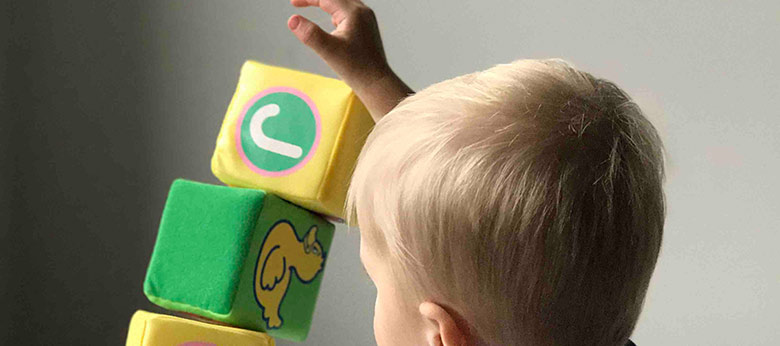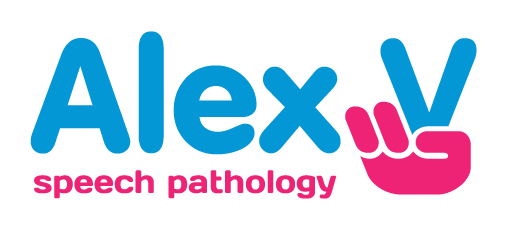Wondering if speech therapy for toddlers is necessary? Here are 5 signs to look out for.
As we’re all aware, when toddlers begin to start talking, they’re hard to understand. They mispronounce words, have trouble putting sentences together and often just talk gibberish!
Of course, this is all fine as at this age, they’re exploring language and learning different ways to use their tongue, lips and teeth to make sounds. After a little while and some practice, your toddler’s speech should make significant improvements.
However, if your toddler’s babbling phase is going on for a little too long, and their speech isn’t improving, it may indicate that they need to see a Speech Pathologist. At Alex V. Speech Pathology, we take interest in treating speech disorders in young children in a fun and comforting way that eliminates the “scariness” associated with clinical appointments.
However we understand that it can be difficult to know when you need to seek help for your child. Therefore, we’re sharing 5 signs to look for before seeking speech therapy for toddlers.

Talking Milestones
One of the first indicators to look for in your child’s speech development is their talking milestones.
1-2 Years
At 1-2 years, your child should be producing new words with every passing month, such as mummy, daddy, cat or dog. By this stage, they should be able to produce some 1-2-word questions, such as “where dog?” “who’s that” or “why?”
This also applies to sentences where your child should be able to use small two-word sentences such as “more food”, “no shoe” or “mummy look.” They should also be starting these words with a variety of consonants to ensure they aren’t just repeating the same sounds.
2-3 Years
By 2-3 years of age, your child should have around 50 understandable words in their vocabulary and be able to use two or three words to make a comment or request, all of which should be intelligible to familiar adults.
They should be able to direct their attention to and ask for certain objects that they know the name of, as well as use the k, g, f, t, d and n sounds.
3-4 Years
As your child is in the peak of their toddler years, they should be talking about their daily activities, such as going to kindergarten or going to a friend’s house in sentences that have 4 or more words.
At this stage, unfamiliar adults should be able to understand their speech most of the time, with your child being able to convey their message easily without repeating words and syllables.
4-5 Years
Nearing the end of their toddler years, your child’s speech should have significantly developed, where they use sentences that contain a lot of detail and can maintain the topic they’re talking about.
They should be able to communicate easily with their friends and adults, say rhyming words when asked, use the same grammar as the rest of the family and identify and name some letters and numbers. When it comes to sounds, your toddler should be able to pronounce most sounds except for some of the trickier sounds including l, s, r, v, z, ch, sh and th.
Hearing & Understanding Milestones
1-2 Years
In their younger toddler years, your child should be able to point to some body parts when asked and follow simple commands and understand questions such as “where’s the dog?” “kick the ball” or “pat the kitty.”
In addition, they should be able to pay attention and listen to stories, songs and rhymes and point to pictures in books when asked.
2-3 Years
At 2-3 years, your toddler should be able to understand words with different meanings such as “go-stop” “up-down” or “big-little.” They should also enjoy hearing longer stories and be able to follow two step commands such as “put your water on the table.”
3-4 Years
At 3-4 years, your child should be a little more alert to sounds, hearing things at the same volume as others and responding when you call from a different room. They should also be able to answer the questions starting with “who?”, “what?”, “when?”, “where?” and “why?”
4-5 Years
Heading towards their school years, your toddler should be able to pay attention during a short story and answer simple comprehension questions about the story. In general conversations, they should be able to hear and understand most of what adults are saying.
What to do next?
If you notice your child hasn’t reached some of their age milestones for talking, hearing or understanding then it might be a good idea to book them in for a speech therapy consultation. As the toddler years are vital in a child’s speech and language development, it is important to book an appointment as soon as you notice any issues.
At Alex V. Speech Pathology, we make sure that your child feels comfortable throughout the entire treatment, taking the time to get to know them so we can tailor our services to their interests and milestones.
To book a consultation, please contact Alex V. Speech Pathology on (07) 3217 7037.

